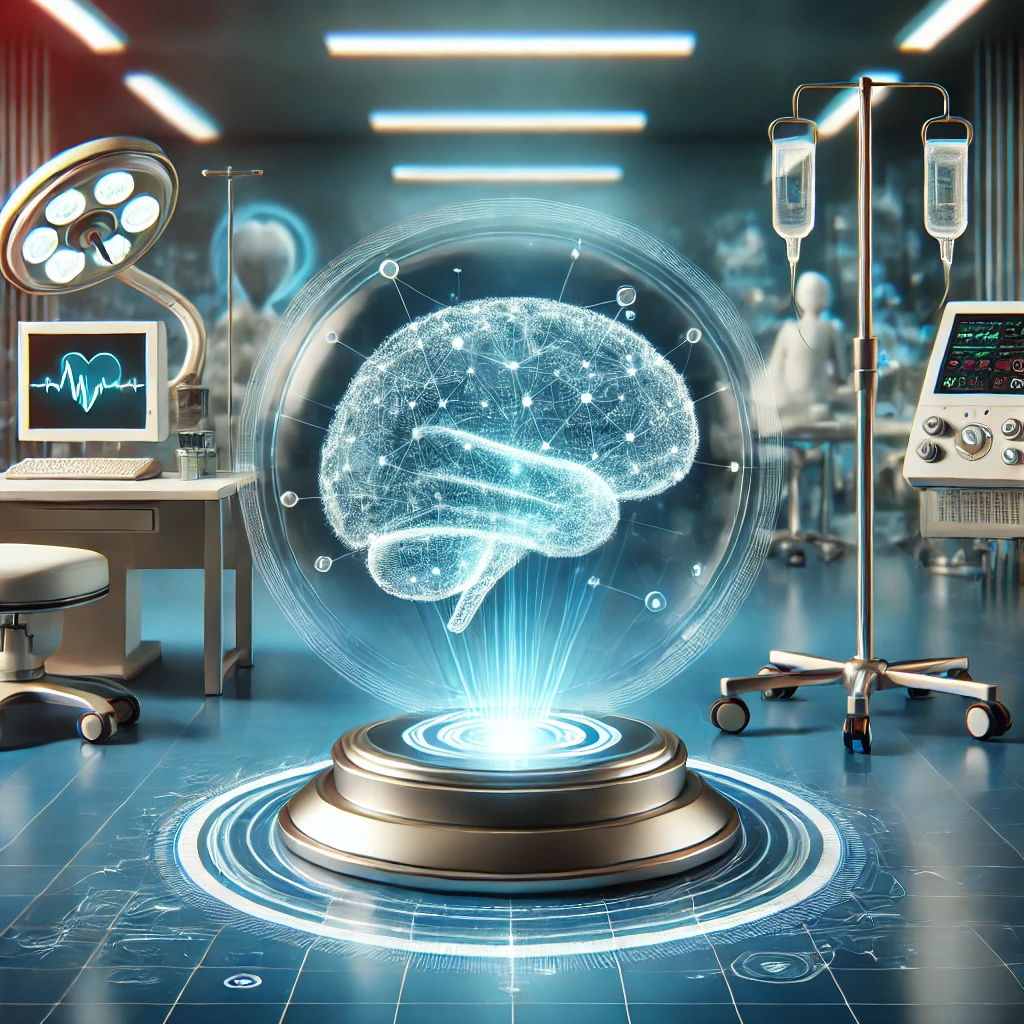AI in Healthcare: Transforming Predictive Medicine, Personalized Care, and Public Health Systems
The healthcare industry is undergoing a profound transformation, thanks to the rapid adoption of artificial intelligence (AI). From enhancing diagnostic accuracy to personalizing treatment plans, AI has the potential to revolutionize the way healthcare is delivered, making it more efficient, precise, and accessible. This blog explores the key roles AI plays in predictive healthcare, personalized medicine, and public health systems.
The Role of AI in Healthcare
Artificial intelligence leverages machine learning, natural language processing (NLP), and data analytics to process large amounts of medical data and generate actionable insights. Its integration into healthcare enables:
- Early disease detection and prevention.
- Personalized treatments tailored to individual patients.
- Streamlined operations for better resource allocation in public health systems.
1. Predictive Healthcare: Anticipating and Preventing Illness
One of the most promising applications of AI in healthcare is its ability to predict diseases before symptoms appear. Predictive healthcare combines AI with big data to analyze patient histories, genetic data, and lifestyle factors, enabling:
- Early detection of chronic diseases like diabetes, heart disease, and cancer.
- Risk prediction models that identify individuals at high risk of developing specific conditions.
- Preventive interventions that reduce long-term healthcare costs and improve patient outcomes.
For example, AI-powered tools like IBM Watson Health analyze patient records to forecast potential health issues, allowing doctors to intervene early.
2. Personalized Medicine: Tailored Treatments for Better Results
AI plays a crucial role in personalized medicine, which involves customizing treatment plans based on an individual’s genetic makeup, medical history, and lifestyle. Key advancements in this area include:
- Precision oncology: AI identifies specific genetic mutations in tumors, helping doctors recommend targeted therapies.
- Genomic analysis: AI algorithms decode DNA data to predict how patients will respond to certain drugs.
- Wearable technology integration: Devices like smartwatches collect real-time health data, enabling AI to monitor and recommend personalized health interventions.
For instance, AI tools like DeepMind Health are helping create detailed models of patients’ responses to medications, ensuring more effective treatments.
3. Improving Public Health Systems
AI is transforming public health systems by enhancing data-driven decision-making and optimizing resource allocation. Key applications include:
- Epidemiological modeling: AI predicts disease outbreaks, helping governments prepare and respond effectively.
- Streamlined healthcare logistics: AI optimizes supply chains for medical equipment and vaccines.
- Healthcare accessibility: AI-powered telemedicine platforms connect patients in remote areas with healthcare providers.
During the COVID-19 pandemic, AI tools played a vital role in tracking virus transmission, optimizing vaccine distribution, and supporting healthcare systems worldwide.
Real-World Applications of AI in Healthcare
- AI-Powered Diagnostics: Tools like PathAI analyze medical images to detect conditions such as cancer and cardiovascular diseases with high accuracy.
- Virtual Health Assistants: Chatbots and virtual assistants like Ada Health provide 24/7 patient support, improving access to healthcare information.
- Clinical Trials: AI accelerates drug development by identifying suitable candidates for clinical trials and analyzing trial data efficiently.
Challenges and Ethical Considerations
While AI has enormous potential in healthcare, it also comes with challenges, such as:
- Data privacy concerns: Ensuring patient data is secure and used ethically.
- Bias in AI algorithms: Addressing biases in datasets that can lead to disparities in healthcare outcomes.
- Regulatory approval: Navigating complex regulations to bring AI innovations to market.
The Future of AI-Driven Healthcare
As AI technologies evolve, their role in healthcare will expand, leading to:
- Automated patient monitoring systems that reduce the workload on healthcare professionals.
- AI-powered robotic surgeries for improved precision and reduced recovery times.
- Advanced population health management for better disease prevention and health promotion.
The future of healthcare lies in AI-powered systems that not only enhance patient outcomes but also reduce costs and make healthcare more accessible worldwide.
Conclusion
The integration of AI into healthcare is transforming the industry, enabling breakthroughs in predictive healthcare, personalized medicine, and public health systems. By leveraging the power of AI, we are entering a new era of innovation that promises to improve lives and revolutionize how we approach medical care.
Whether it’s early disease detection, precision treatments, or strengthening public health, AI is undeniably the driving force behind the future of healthcare.


